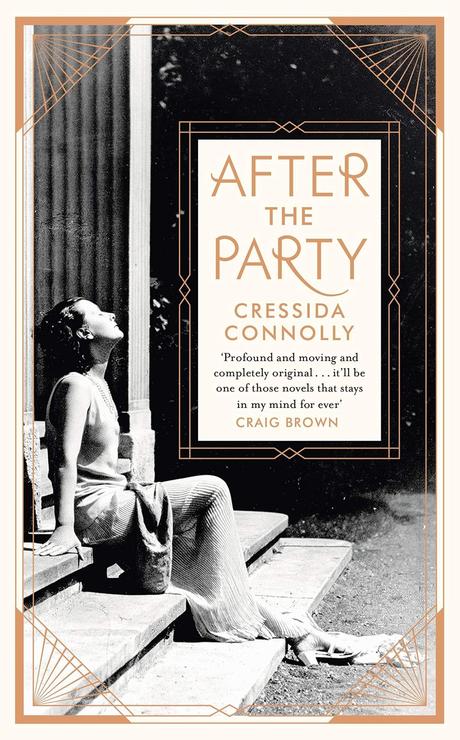
A beautiful cover, a WW2 setting and a plot that includes the mention of a Mitford sister? Could a book be any more suited to me?, I thought, as I treated myself to the pretty hardcover edition. Cressida Connelly is an author new to me, though Darlene reviewed a different book by her a few weeks ago and piqued my interest. She seems to favour historical settings, and this book is certainly very well researched. Largely set in the late 1930s, it tells the story of Phyllis, a middle class, utterly respectable thirty something, who has spent several years living abroad due to her husband’s work. Newly returned to England after her husband finds himself out of a job, Phyllis and her family settle near her sisters, Nina and Patricia, in the peaceful Sussex countryside. Phyllis is delighted to be back in England after so long abroad, but she feels rather lost and out of sorts. Used to having people to look after her children for her, she is uncertain of her role as a mother, and she is starting to question her marriage to the much older Hugh, who had initially wanted to marry her far more outgoing and glamorous sister Patricia. The youngest of the family, and used to being somewhat bossed about by her sisters, Phyllis struggles to find a place and identity for herself, until she is roped into helping out her sister Nina and her husband Eric with the summer camps they run for adults and children. Thrown into the society of all sorts of interesting people who attend the camps and mix socially with her sisters, Phyllis and Hugh soon find themselves caught up in the political movement Nina, Eric, and to a certain extent Patricia and her husband Greville, too, are involved in. This gives them both a sense of purpose and belonging, and the party’s focus on peace as WWII breaks out becomes ever more important to both of them.
In amongst all of this is Phyllis’ growing friendship with a neighbour, Sarita, who seems to understand and accept Phyllis more than anyone else ever has. They form a strong bond, but Phyllis can see that something isn’t right beneath the surface. Fabulously wealthy and beautiful, Sarita seems to have everything. But something is clearly making her desperately unhappy, and when a dreadful event happens after a party thrown at Sarita’s house, Phyllis blames herself. Things seem to be crumbling around her as her friendships and marriage start to fall apart, and then, all of a sudden, her connection with Nina’s political views comes into question, and she is shocked to find that not everyone thinks her beliefs are for the good of the country…
Essentially this is a novel about the rise of Fascism and how innocuous extreme beliefs can initially appear. It opens with Phyllis’ first person narrative from the 1970s, so we know straight away that she has been in prison – but we don’t know why or what she’s done – there are hints she’s to blame for something terrible, but it’s all very vague. To people not familiar with Oswald Mosley or Diana Mitford, whose names are mentioned quite early on – it might be more of a surprise that it’s about Fascism, but to me it was obvious from the start, and I assumed she’d been imprisoned for her political affiliation and for doing something connected with Hitler, but I was surprised by the actual circumstances of her imprisonment. The something terrible turned out to not be connected to the politics at all and I found it frankly rather far fetched and unrealistic – a strange add-on to the plot, too, that had no real reason to impact on any of the events. It’s well written and atmospheric, but unfortunately it fell rather flat for me as Phyllis is such a wishy-washy character and there is no real reference to her political beliefs, ideology, convictions, etc. at all. We are expected to believe that Phyllis and her husband, who have never shown any interest in politics, have become passionate advocates of Oswald Mosley’s political party without ever having any conversations with each other, or any one else, about their opinions on the matter whatsoever. It was absurd to me that this part of Phyllis’ character was not fleshed out in any detail, and though she is presented as a thoughtful, sensitive and intelligent woman, we are expected to believe that she sleepwalked into becoming a fascist, simply believing that it was all about putting Britain first. As far as I’m concerned, if you’re writing a novel about politics, there needs to be some politics in it, and the total lack of this meant I couldn’t really believe in the characters or events. It’s a shame, because the premise had so much promise, but ultimately, it didn’t work for me as a coherent novel. Nevertheless, I did very much like Cressida Connelly’s style of writing, and I’d certainly be interested in trying another one of her books in future.
Advertisements